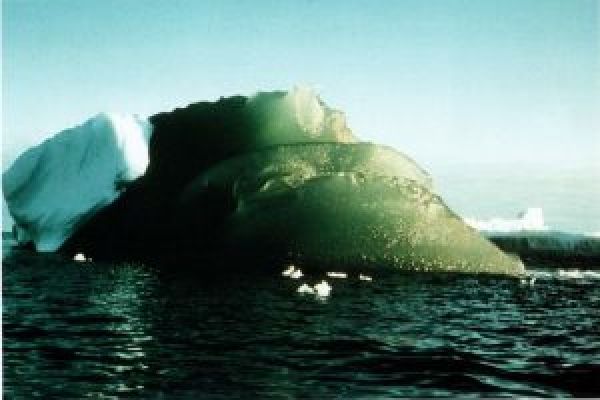Researchers have proposed a new idea that may explain why some Antarctic icebergs are tinged emerald green rather than the normal blue, potentially solving a decades-long scientific mystery.
Pure ice is blue because ice absorbs more red light than blue light. Most icebergs appear white or blue when floating in seawater, but since the early 1900s explorers and sailors have reported seeing peculiar green icebergs around certain parts of Antarctica.
The green icebergs have been a curiosity to scientists for decades, but now glaciologists report in a new study that they suspect iron oxides in rock dust from Antarctica’s mainland are turning some icebergs green. They formulated the new theory after Australian researchers discovered large amounts of iron in East Antarctica’s Amery Ice Shelf.
Iron is a key nutrient for phytoplankton, microscopic plants that form the base of the marine food web. But iron is scarce in many areas of the ocean.
Read more at American Geophysical Union
Image: A green iceberg sighted in the Weddell Sea, Antarctica on February 16th, 1985. (Credit: AGU/Journal of Geophysical Research: Oceans/Kipfstuhl et al 1992.)


